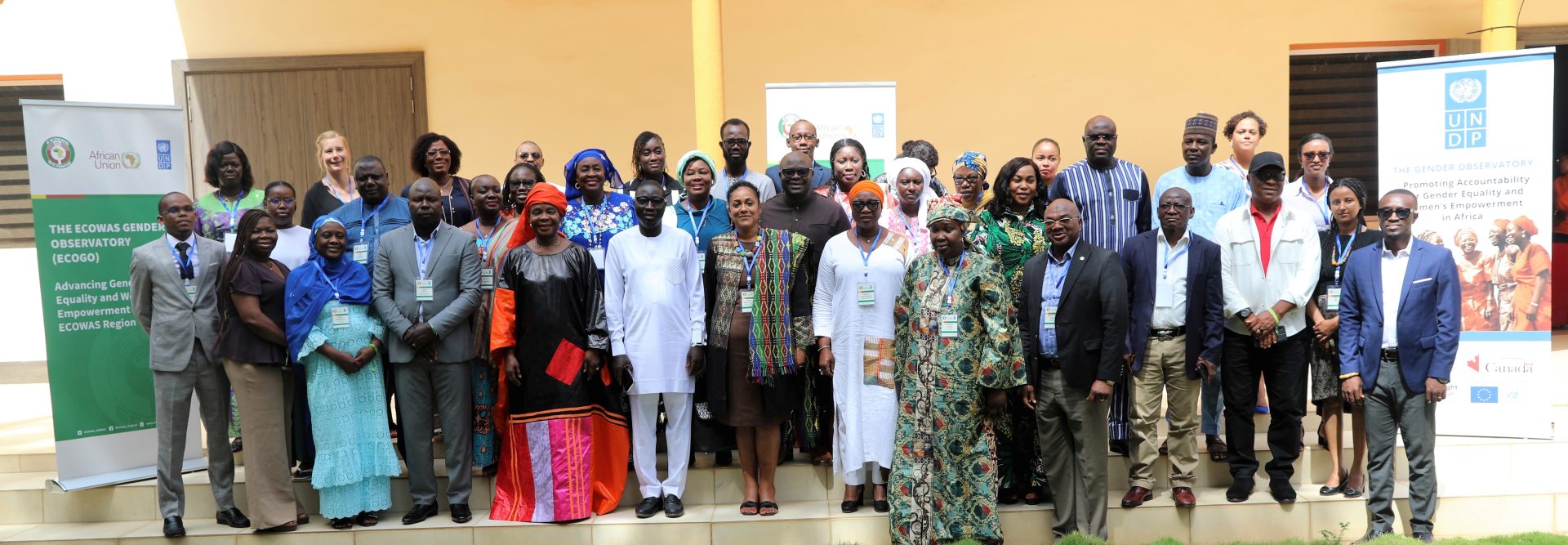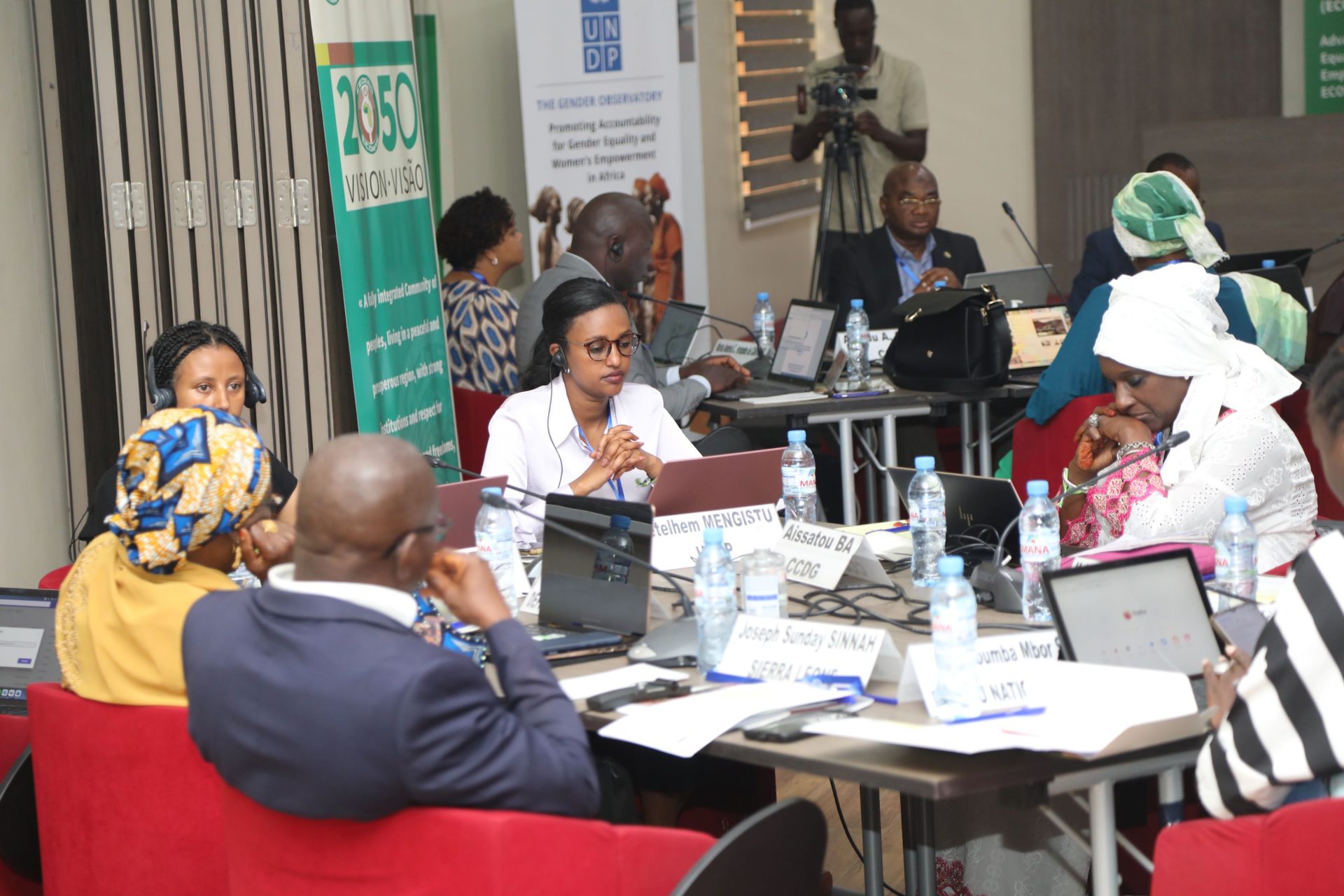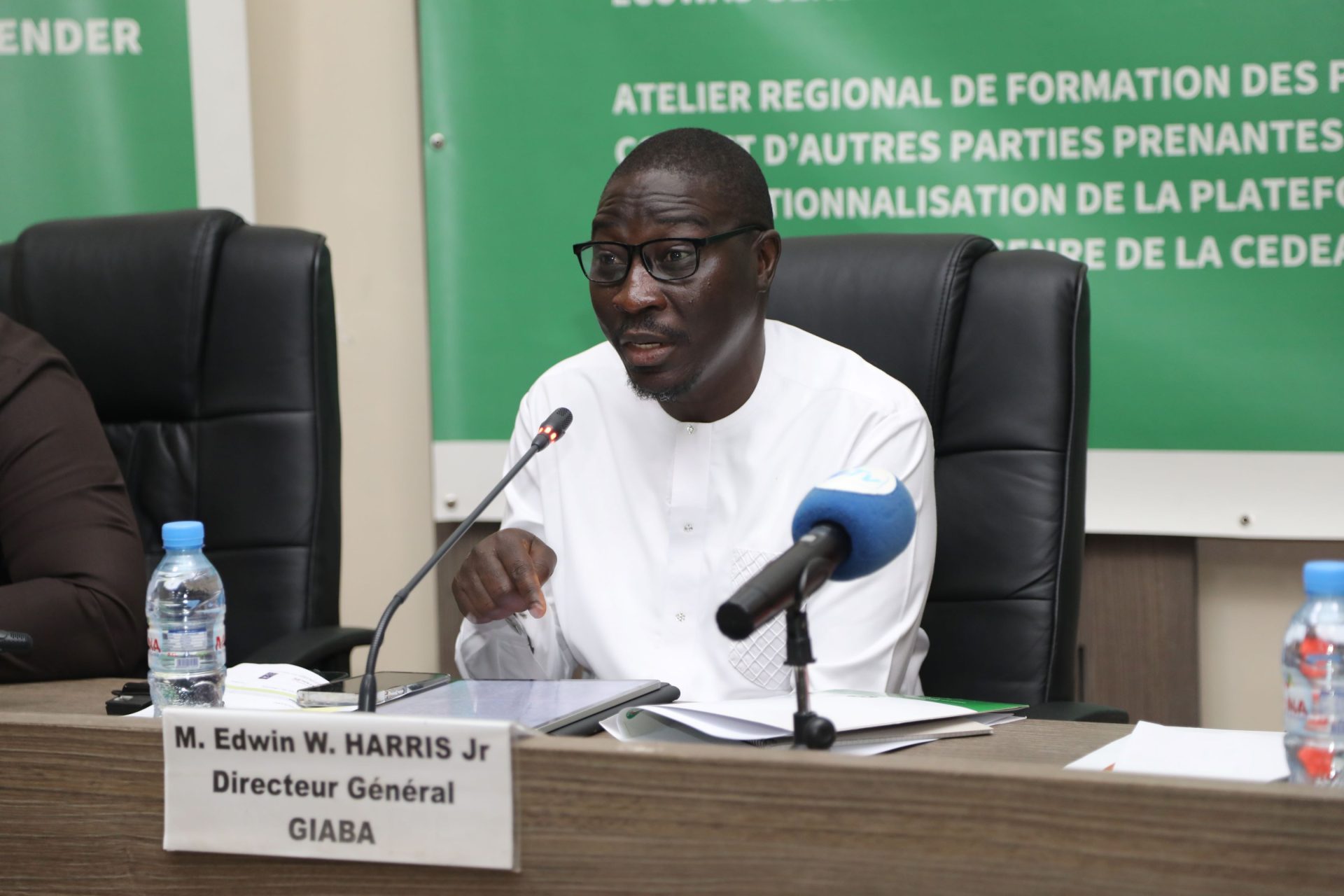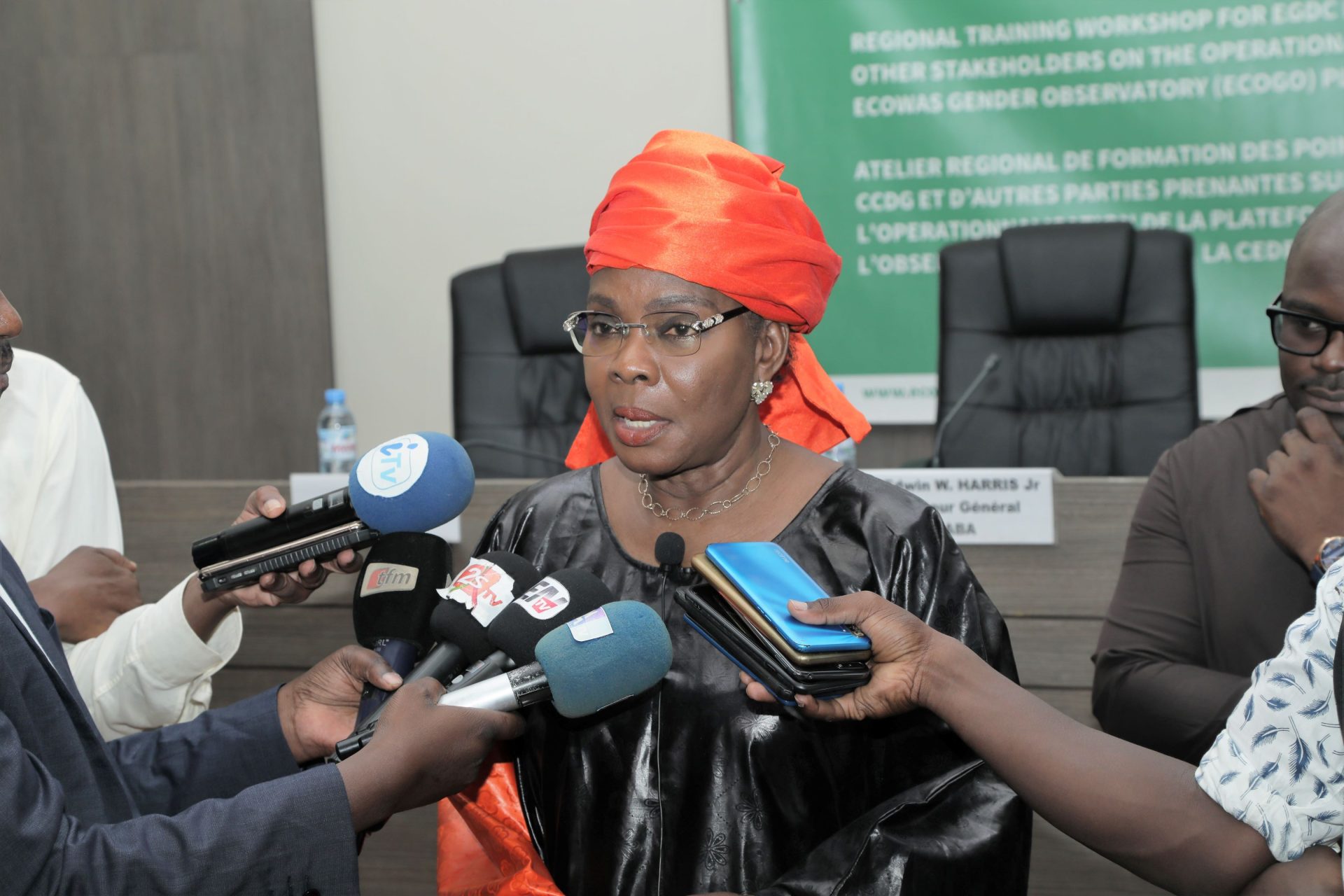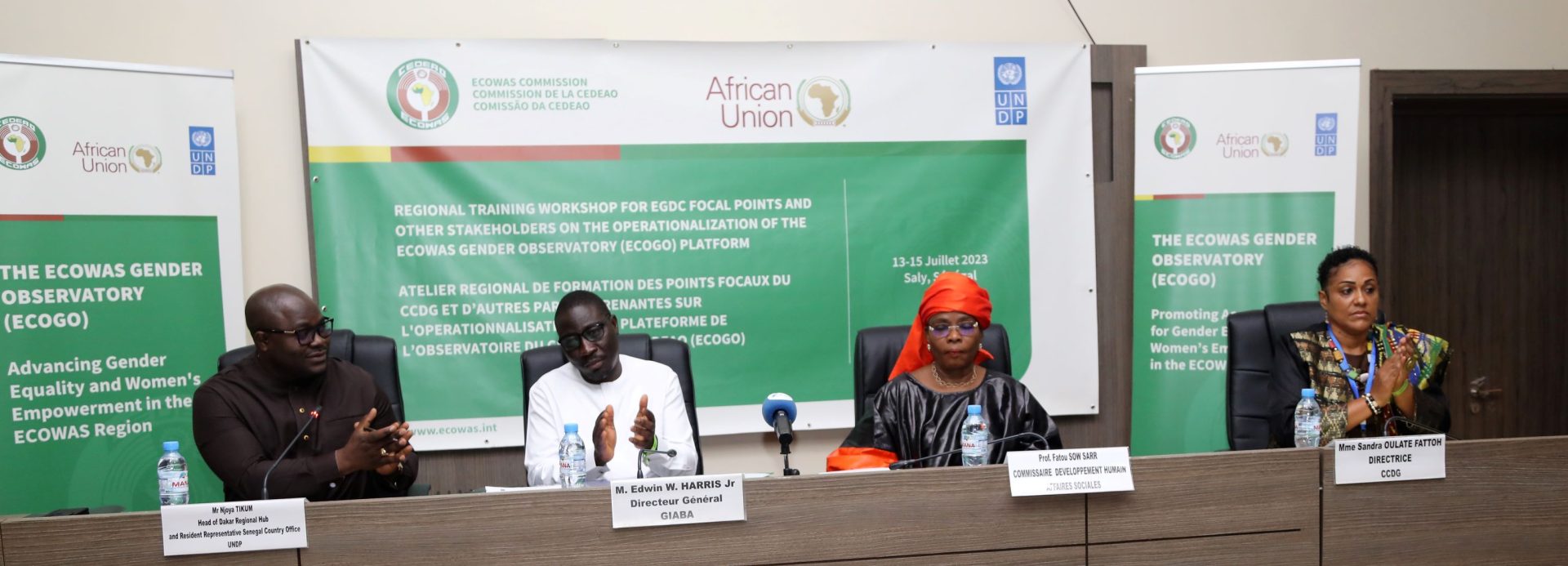Regional Workshop on the Operationalisation of the ECOWAS Gender Observatory (ECOGO) Platform for the Collection, Analysis and Management of Reliable and Consistent Data on Gender Equity Programmes
17 Jul, 2023Regional Workshop on the Operationalisation of the ECOWAS Gender Observatory (ECOGO) Platform for the Collection, Analysis and Management of Reliable and Consistent Data on Gender Equity Programmes implemented in West African Member States.
The ECOWAS Gender Development Centre (EGDC), with support from the Regional Service Centre for Africa of the United Nations Development Programme (UNDP), held a regional training workshop from 13 to 15 July 2023 in Saly, Senegal, to train key EGDC actors and stakeholders in Member States on the operationalisation of the ECOWAS Gender Observatory platform. The workshop was opened by Professor Fatou Sow Sarr, ECOWAS Commissioner for Human Development and Social Affairs, and was attended by Edwin Harris Jr, Director General of the Intergovernmental Action Group against Money Laundering (GIABA), Njoya Tikum, UNDP Resident Representative for Senegal, and Sandra Ulate Fatoh, Director of the EGDC.
The workshop was attended by approximately thirty participants, including gender experts from Member States, ECOWAS institutions and specialized agencies, partner institutions, and civil society networks and associations working in the field of gender equality and equity in West Africa.
The aim of the workshop was to equip participants with the knowledge, skills and capacities required to understand and operationalise the ECOGO platform, which is an online regional monitoring, evaluation, reporting and data management platform on gender and development in the ECOWAS region.
The main objectives of the ECOWAS Gender Observatory (ECOGO) platform are to ensure the systematic and real-time monitoring, evaluation and reporting of EGCD programmes and activities in Member States, to ensure the timely provision of information to Member States on the contributions of the EGCD to the promotion of gender equality and the empowerment of women and girls in the region, and to create a framework for the collection, storage, processing and provision of statistical data on the status of gender issues in the ECOWAS region.
The opening ceremony of the workshop was marked by several addresses. In her welcome address, Mrs Sandra Oulate Fatoh thanked the partners, particularly the UNDP, for its commitment to supporting the EGDC in achieving substantial gender equality between men and women and thus accelerating the achievement of Agenda 2063 for sustainable development. She also thanked participants from Member States, institutions, ECOWAS specialized agencies, partner organisations and civil society groups for their availability and commitment to gender issues.
She was followed by Mr Njoya Tikum, UNDP Resident Representative for Senegal, who spoke on the need to reinforce accountability for gender parity between men and women, in his words: “The establishment of a regional monitoring, evaluation, reporting and data management system on gender and development in the ECOWAS region will not only serve as a sustainable response to data generation, but also as a means of accountability”.
The workshop was officially launched by Professor Fatou Sow Sarr, following a keynote address by Edward Harris Jr, Director General of GIABA, who emphasized the importance of collecting reliable data for management and decision-making. In her speech, the ECOWAS Commissioner for Human Development and Social Affairs highlighted the major regional challenges that lay ahead in the area of gender: “ECOWAS believes that in the years to come, gender issues in West Africa will become more pressing due to the decisive role women and young people play in development, the significant proportion of the Community’s population they represent, and the challenges associated with their socio-economic integration, such as training, employment, fundamental human rights, peace and security issues, climate change, etc.”
The idea of setting up the Observatory stemmed from the EGDC’s difficulties in collecting consistent and reliable data in real time on the implementation and impact of its programmes and activities on the citizens of Member States. To address this challenge and create a framework for systematic and coherent data collection and analysis, the EGDC received support from the UNDP to design and implement ECOGO. This observatory will enable the EGDC to strengthen the progress made in Member States, capitalise on its achievements and provide a new drive to further strengthen its service delivery to Member States.
Several key activities have been carried out in the establishment of the ECOGO platform. This includes a feasibility study and a needs assessment for both the EGDC and national stakeholders. These two activities have led to the development of a prototype digital platform, which has been pre-tested and is currently being reviewed before being transformed into a finished, operational product.




